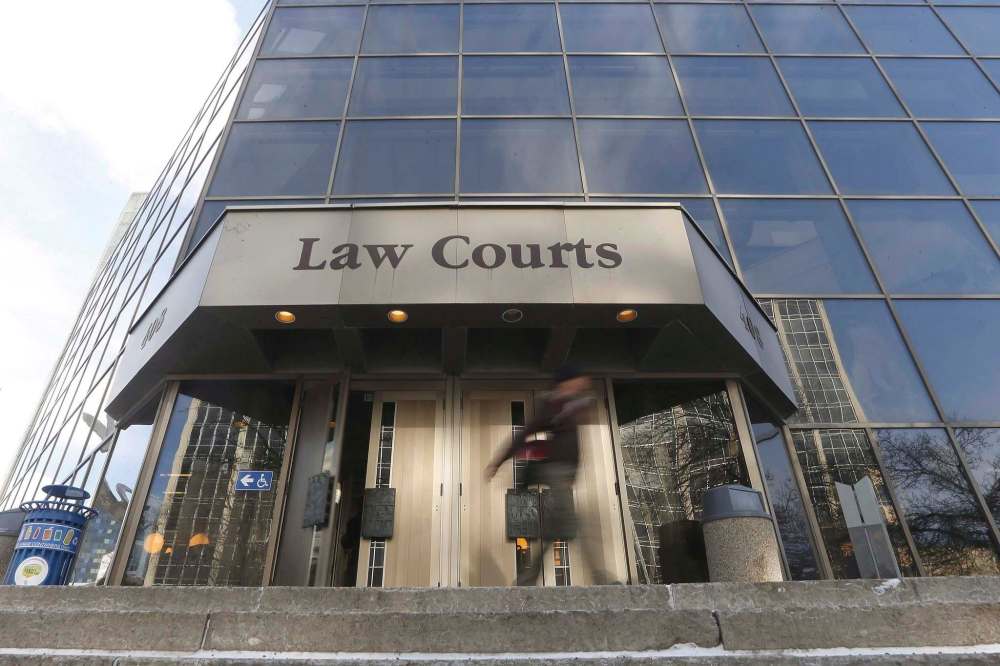Less punishment, more justice
Read this article for free:
or
Already have an account? Log in here »
To continue reading, please subscribe:
Monthly Digital Subscription
$0 for the first 4 weeks*
- Enjoy unlimited reading on winnipegfreepress.com
- Read the E-Edition, our digital replica newspaper
- Access News Break, our award-winning app
- Play interactive puzzles
*No charge for 4 weeks then price increases to the regular rate of $19.00 plus GST every four weeks. Offer available to new and qualified returning subscribers only. Cancel any time.
Monthly Digital Subscription
$4.75/week*
- Enjoy unlimited reading on winnipegfreepress.com
- Read the E-Edition, our digital replica newspaper
- Access News Break, our award-winning app
- Play interactive puzzles
*Billed as $19 plus GST every four weeks. Cancel any time.
To continue reading, please subscribe:
Add Free Press access to your Brandon Sun subscription for only an additional
$1 for the first 4 weeks*
*Your next subscription payment will increase by $1.00 and you will be charged $16.99 plus GST for four weeks. After four weeks, your payment will increase to $23.99 plus GST every four weeks.
Read unlimited articles for free today:
or
Already have an account? Log in here »
Hey there, time traveller!
This article was published 05/02/2019 (2501 days ago), so information in it may no longer be current.
Here is a sentence that is not written often enough: Manitoba has good news about people with fetal alcohol spectrum disorder who are caught up in the justice system.
A new court is set to open in Manitoba this month with judges who are better informed about FASD. The special court will sit one day a week and will include support workers to connect sufferers with community programs.
A court that is sensitive to the many challenges faced by sufferers of FASD has been a long time coming.

People afflicted with the neurodevelopmental disorder may view the world in a way that is at odds with the traditional tenets of the justice system. For example, they may act impulsively without connecting cause and effect, making them less responsible for their actions.
In more serious instances, they can be incapable of reading because alcohol damaged their brain when they were in vitro. One possible result of being unable to read legal notices is that they can get into further legal problems. As examples, perhaps they don’t appear in court when they should, or they don’t understand bail conditions such as a curfew.
Unable to fully comprehend the justice system and their legal rights, sufferers of FASD are more likely to end up behind bars. Research shows as many as 25 per cent of inmates in federal correctional facilities could have some form of FASD, which is often undiagnosed.
A program started in 2004 offered Manitoba judges and lawyers information about FASD, and also helped possible sufferers get a diagnosis and help from community agencies. This program’s commendable work will be furthered by the new court opening this month. There will be a smaller, quieter courtroom with fewer distractions and visual images will be used to make sure offenders understand what’s going on.
It’s the latest example of Manitoba’s justice system adapting to serious social problems. The province already has a drug-treatment court, a mental-health court and a domestic-violence court, and is currently investigating the possibility of restorative-justice court.
While the new FASD court promises an enlightened approach to providing justice, it’s hoped a similar sensitivity can be displayed within the penal system.
A Correctional Service Canada report in 2011 looked at FASD prevalence at Stony Mountain Institution, and recommendations included FASD screening upon admission to federal corrections. Unfortunately, that recommendation was not adopted. Proper diagnoses are important so inmates with FASD can get programs behind bars that will help them function in the community without reoffending.
It’s true that the first step to fighting FASD is educating women about the dangers of drinking alcohol while pregnant.
But once the damage is done, penal institutions and the justice system must adapt to the unique challenges of FASD with an agenda in which punishment is less important than connecting the offenders with resources that can help them.
For people with FASD, the new court seems like a big win. And if the court steers offenders towards community supports that divert them from further crimes, it’s also a big win for the community.










